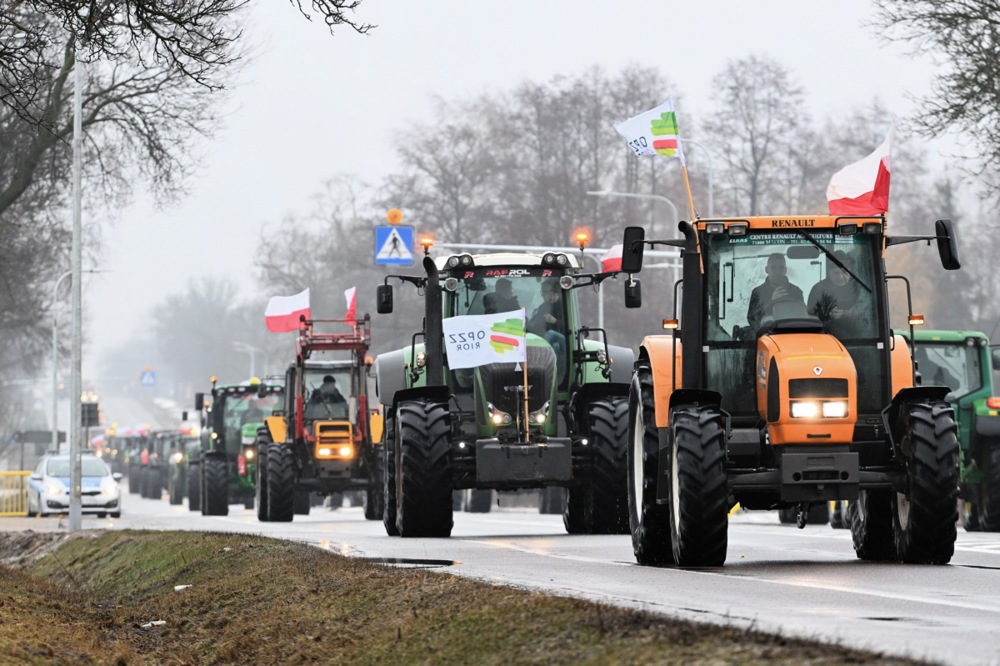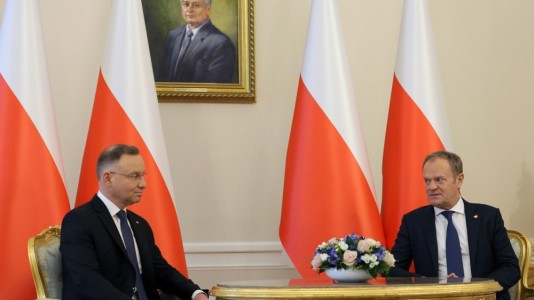Polish farmers began a 30-day protest on Feb. 9, blocking roads and border crossings with Ukraine in protest against EU climate policies and the influx of cheap food imports from Ukraine.
The protests held in 260 locations led to massive lines at the border with Ukraine, with just two trucks being let through each hour. At one of the border crossings, farmers tipped out the grain from three trucks and took samples, which will be tested in labs to ascertain if they meet EU standards.
Farmers operating tractors carrying Polish flags and banners stating, “EU policy will destroy the land and the Polish farmer” and “Green mess” — referencing the Green Deal — started blocking access roads to major cities early on Feb. 9.
One of the most heated protests took place in the city of Bydgoszcz, where a group of farmers attempted to force their way into the local prefecture to see the prefect for the region.
The police were unable to persuade the farmers to leave peacefully and in the end used pepper spray to make the demonstrators leave, but not before an ambulance had to be called to help one of those injured.
In Bydgoszcz, as in other major Polish cities such as Poznań and Kraków, several hundred tractors entered the city and burned tires at one of the city’s roundabouts.
The protests come amid a wave of similar demonstrations across the EU, including Germany, France, Belgium, Portugal, Romania, Lithuania, Latvia, the Netherlands and Greece.
They reflect broader discontent among farmers in the bloc over the impact of climate policies on the sector, which have led to rising costs, and “unfair competition” from countries such as Ukraine.
The latest action in Poland was called for by the farmers’ union Rural Solidarity. It has criticized what it calls the Polish government’s “passivity” in the face of growing food imports from Ukraine.
The farmers want a radical revision of the trade deal between the EU and Ukraine and also seek that the agriculture-related provisions of the EU’s Green Deal, a set of policy initiatives aimed at achieving climate neutrality by 2050, be scrapped. They are convinced that imposing additional environmental requirements will lead to a reduction in agricultural production in Europe.





